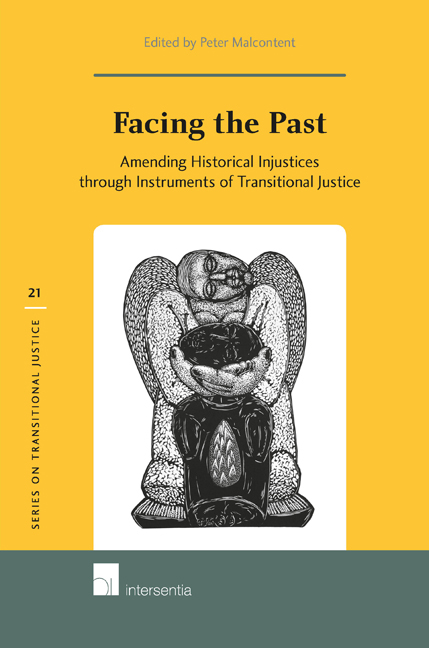Book contents
- Frontmatter
- Acknowledgements
- Contents
- PART I TRANSITIONAL JUSTICE. WHAT'S IN THE NAME?
- PART II RETRIBUTIVE JUSTICE
- Introduction
- Pacting the Law within Politics. Lessons from the International Criminal Court's First Investigations
- National and Hybrid Tribunals. Benefits and Challenges
- Beyond the Courtroom. The Objectives and Experiences of International Justice at the Grassroots
- From Gacaca to Mato Oput. Pragmatism and Principles in Employing Traditional Dispute Resolution Mechanisms
- Dealing with Organisations and Corporations
- PART III RESTORATIVE JUSTICE
- PART IV PENDING CASES
- Author Information
Beyond the Courtroom. The Objectives and Experiences of International Justice at the Grassroots
from PART II - RETRIBUTIVE JUSTICE
Published online by Cambridge University Press: 15 December 2017
- Frontmatter
- Acknowledgements
- Contents
- PART I TRANSITIONAL JUSTICE. WHAT'S IN THE NAME?
- PART II RETRIBUTIVE JUSTICE
- Introduction
- Pacting the Law within Politics. Lessons from the International Criminal Court's First Investigations
- National and Hybrid Tribunals. Benefits and Challenges
- Beyond the Courtroom. The Objectives and Experiences of International Justice at the Grassroots
- From Gacaca to Mato Oput. Pragmatism and Principles in Employing Traditional Dispute Resolution Mechanisms
- Dealing with Organisations and Corporations
- PART III RESTORATIVE JUSTICE
- PART IV PENDING CASES
- Author Information
Summary
INTRODUCTION
On Monday 26 January 2009, a crowd assembled in Bunia in the eastern Democratic Republic of Congo (DRC) jostling for an optimal view of the screen that had been erected in their public hall. The crowd, hundreds more than had been anticipated, gathered to view the commencement of criminal proceedings against Thomas Lubanga Dyilo, the warlord on trial for conscripting and enlisting child soldiers.
Was this gathering testament to the level of interest in the International Criminal Court's (ICC) inaugural trial among those ravaged by the violence? Had the ICC's Outreach Program, responsible for the screen's organisation, begun to succeed in its objective to promote support for the judicial process? And was the world witnessing mass demonstration of a local population's firm commitment to the rhetoric of retributive justice being dispensed by the first permanent Criminal Court?
It later became clear that the overwhelming majority of those who had amassed were supporters loyal to Lubanga, seeking to vent their anger as the prosecution delivered its opening statement. Their anger was further stoked when the satellite feed failed to show the defence's opening statement. After similar concerns over the broadcast of the second trial at the ICC, presiding Judge Bruno Cotte stressed ‘the importance that our proceedings not be limited to this courtroom’.
And therein lies an undercurrent of discontent regarding international criminal trials that has slowly risen to the surface over recent years. Indeed, uncertainty reigns over the extent to which it can be asserted that international criminal proceedings are not simply confined to legal procedures and the delivery of judgments at trials. Although unintended, Judge Cotte's statement provokes fundamental questions beyond problems of outreach that cast doubt on the very meaning, relevance and manifestation of international justice beyond the courtroom. Is the justice being delivered at the ICC and beyond merely the domain of international lawyers, or do these instruments of retribution achieve their grand objectives for those who have suffered horrific violence? Is the rhetoric of international justice with its myriad goals aligned with grassroots3 understandings, and is this justice experienced in practice by its intended beneficiaries – ordinary people? Until recently finding answers to such questions had been subordinated to the assumed benefits of seeking justice in transition.
- Type
- Chapter
- Information
- Facing the PastAmending Historical Injustices Through Instruments of Transitional Justice, pp. 139 - 166Publisher: IntersentiaPrint publication year: 2016



